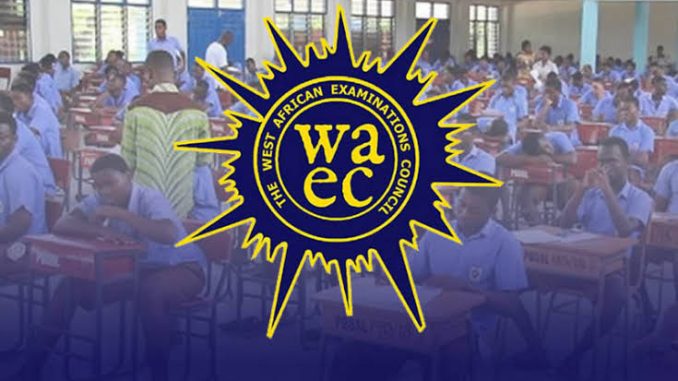
(1) ATTENTION :- PLEASE DONT COME HERE FOR FREE ANSWER… BE WARNED
(2) ATTENTION:- YOU ARE ADVISE TO SEND YOUR SUBSCRIPTION DETAILS ON WHATSAPP… ADD US ON WHATSAPP WITH => 09054348225
*(NUMBER 1)*
[CHOOSE ANY FIVE]
(i) Representation of diverse interests: In a multi-party system, different parties represent a wide range of ideologies, interests, and perspectives within society. This diversity ensures that various segments of the population have a voice and are represented in the decision-making process. It helps prevent the dominance of a single party or group and fosters inclusivity in governance.
(ii) Checks and balances: Multiple parties in a system act as checks and balances on each other. Opposition parties can scrutinize government policies, challenge the ruling party’s decisions, and propose alternative solutions. This dynamic ensures that power is not concentrated in the hands of a single party, reducing the risk of authoritarianism or abuse of power.
(iii) Accountability and transparency: A multi-party system encourages accountability and transparency in governance. Parties in opposition can hold the ruling party accountable for its actions, policies, and performance. The presence of multiple parties fosters a competitive environment, where parties strive to gain public support by being transparent, responsive to public concerns, and delivering on their promises.
(iv) Policy debates and informed decision-making: Different parties with varying ideologies and policy platforms engage in debates and discussions on various issues. This promotes a healthy exchange of ideas, encourages public discourse, and contributes to informed decision-making. The competition between parties to present their policies and win public support leads to a more robust and comprehensive policy development process.
(v) Flexibility and adaptability: A multi-party system provides flexibility and adaptability in responding to changing societal needs and challenges. As different parties vie for public support, they are compelled to be responsive to evolving public demands and preferences. This adaptability ensures that the government remains dynamic and capable of addressing emerging issues effectively.
(vi) Coalition building and consensus: In multi-party systems, governments often require coalition formations to secure a majority in the legislative body. Coalition governments encourage negotiation, compromise, and consensus-building among parties with different ideologies. This process can lead to more balanced and inclusive policies that reflect the interests of multiple parties, fostering stability and cooperation in governance.
(vii) Electoral competition: Multi-party systems typically involve competitive elections, where parties vie for public support through campaigns and political mobilization. This competition incentivizes parties to focus on the needs and aspirations of the electorate, leading to increased responsiveness and responsiveness to public concerns. Regular elections provide opportunities for citizens to evaluate the performance of different parties and hold them accountable through the power of the vote.
==================================
(2)
(i) Division of Powers: It establishes a system of checks and balances by distributing powers among different branches of government. This helps prevent the concentration of authority and ensures a balance of power, thereby preventing potential abuse.
(ii) Protection of Rights: Constitutions typically include a bill of rights that safeguards the fundamental rights and liberties of individuals. These rights, such as freedom of speech, assembly, and religion, act as a shield against potential government overreach, ensuring citizens’ civil liberties are protected.
(iii) Rule of Law: A constitution lays out the fundamental laws and principles governing the state. It provides a legal framework that all citizens and authorities must adhere to, ensuring consistency and predictability in the legal system. This adherence to the rule of law promotes stability and fairness within the society.
(iv) Mechanism for Governance: Constitutions establish the structure of government, define the powers of each branch, and outline the procedures for decision-making and policy implementation. This framework guides the functioning of the government, maintaining order and coherence in governance.
(v) Adaptability through Amendment: A constitution often includes provisions for amendments or revisions. This flexibility allows the document to adapt to changing societal needs, technological advancements, or shifts in public opinion, ensuring its relevance and effectiveness over time.
==================================
(7)
(CHOOSE ANY FIVE)
(i) Diversion of Resources: Political conflicts in Nigeria often lead to the diversion of essential resources away from development projects. Funds that could be allocated for infrastructure, education, and healthcare may be redirected to address immediate political concerns or security issues.
(ii) Instability and Uncertainty: Political conflicts create an atmosphere of instability and uncertainty, deterring foreign investments and hindering economic growth. Investors are hesitant to commit resources in an environment characterized by political unrest and unpredictability.
(iii) Impaired Governance: Ongoing political conflicts can result in weakened governance structures. Decision-making processes may be hindered, and the ability to implement and enforce policies for sustainable development may be compromised.
(iv) Social Disruption: Political conflicts often spill over into social unrest, disrupting communities and hindering social development. Displacement of populations, breakdown of social services, and increased crime rates are common consequences, impeding overall societal progress.
(v) Corruption: Political conflicts can exacerbate Corruption as individuals may exploit the chaotic environment for personal gain. Corruption diverts public resources away from developmental initiatives and undermines the effectiveness of public institutions.
(vi) Ethnic and Religious Tensions: Nigeria’s diverse population can experience heightened tensions during political conflicts, leading to ethnic or religious divisions. Such divisions hinder social cohesion and can divert attention and resources away from collaborative national development efforts.
(vii) Infrastructure Decay: Political conflicts may result in neglect and deterioration of infrastructure. Maintenance and development projects are often put on hold, leading to crumbling roads, inadequate power supply, and a lack of basic amenities that are crucial for overall development.
(viii) Brain Drain: Persistent political conflicts may drive skilled professionals and intellectuals out of the country in search of more stable environments. This brain drain deprives Nigeria of the expertise needed for sustainable development.
(ix) Educational Disruptions: Political conflicts can disrupt educational systems, affecting the quality and accessibility of education. Disruptions in schooling impede the development of a skilled workforce necessary for economic and social progress.
(x) Humanitarian Crises: Intensified political conflicts can lead to humanitarian crises, with displaced populations requiring urgent assistance. Humanitarian efforts divert resources from developmental projects, prolonging the cycle of underdevelopment.
===================================
*WAEC GCE GOVERNMENT*
*NUMBER EIGHT*
(8)
(PICK FIVE ONLY)
(i) Lack of Member State cooperation: The UN’s effectiveness heavily relies on the cooperation and commitment of its member states. If member states do not prioritize conflict prevention or fail to contribute adequate resources and support, it can hinder the UN’s efforts.
(ii) Political divisions and rivalries: Political divisions among member states, particularly those holding veto power in the Security Council, can impede the UN’s ability to take decisive action. Rivalries and geopolitical considerations can limit consensus-building and hinder timely and effective response to conflicts.
(iii) Limited resources: The UN often faces resource constraints, including financial and logistical limitations. Limited funding can restrict the organization’s ability to carry out preventive diplomacy, peacekeeping operations, humanitarian assistance, and development initiatives, all of which are crucial in averting conflicts.
(iv) Proliferation of non-state actors: The rise of non-state actors, such as terrorist organizations or armed militias, poses significant challenges to the UN’s conflict prevention efforts. These groups often operate outside traditional state boundaries, making it difficult for the UN to engage with them and address the underlying causes of their actions.
(v) Sovereignty concerns: The principle of state sovereignty can sometimes impede the UN’s efforts in conflict prevention. Governments may be reluctant to allow external interference in their internal affairs, which can limit the UN’s ability to intervene effectively, even in situations where mass atrocities are occurring.
(vi) Weak enforcement mechanisms: The UN’s enforcement mechanisms, such as peacekeeping forces, sanctions, and international courts, can face limitations, including lack of political will, inadequate mandates, or insufficient resources. These factors can restrict the organization’s ability to ensure compliance with its decisions or resolutions.
(vii) Incomplete membership and representation: The exclusion or limited representation of certain countries or regions in the UN can undermine its credibility and effectiveness. If key stakeholders in a conflict are not adequately involved in decision-making processes, the UN’s ability to prevent conflicts can be compromised.
(viii) Complex conflicts and vested interests: Conflicts often have complex underlying causes, such as historical grievances, socio-economic disparities, or ethnic and religious tensions. Difficulties in addressing these underlying factors, coupled with vested interests of powerful actors, can hinder the UN’s ability to avert conflicts.
===================================
(10)
(i) Economic Advancement: Embracing interdependence among states allows Nigeria to tap into a broader array of resources, markets, and investment opportunities, catalyzing economic growth through diversified trade and investment avenues.
(ii) Political Harmony and Security: Commitment to interdependence fosters regional stability by nurturing mutual diplomatic relations and cooperative security arrangements, consequently reducing the likelihood of conflicts and bolstering collective security efforts.
(iii) Cultural and Intellectual Exchange: Embracing interdependence facilitates cultural exchange and intellectual dialogue, enriching Nigeria’s social fabric with diverse perspectives, fostering social tolerance, and nurturing an environment conducive to innovation and creativity.
(iv) Technological Progress: Collaborative efforts with other states enable Nigeria to access new technologies and knowledge, fostering innovation and advancements across various sectors, thus accelerating national development.
(v) Enhanced Global Standing: Strengthening interdependence elevates Nigeria’s global positioning, providing the nation with increased influence in international affairs, bolstered diplomatic relations, and amplified participation in global decision-making forums, reinforcing its role as a significant actor on the global stage.
===================================
SUBSCRIPTION PRICE
== Direct SMS: #1000 MTN CARD
Direct SMS MEANS all answers (theory & obj) will come direct to your phone as SMS.
== WhatsApp:: #500 MTN CARD
WhatsApp MEANS all answers (theory & obj) will be sent to you on whatsapp.
== Online PIN:: #500 MTN CARD
Online PIN MEANS The Pin to access our answers online via https://wakagist.com/answers will be sent to u at least 2hours before the exam to access our answers
CLICK HERE TO ENTER YOUR PASSWORD GIVEN TO YOU
Send The Following details:-
(i) MTN CARD Pin(s)
(ii) Your Name
(iii) Subject
(iv) Phone number
===> 09054348225 via sms
NOTE:- All SMS Sent To The Above Number Are Attended To, Our Phone Number Might Be Diverted To Avoid Distraction. Always Send Us SMS Of Your Complaint Even When Our Number Is Not Available, Your Message(s) Will Get To Us And We Will Reply You ASAP.



Leave a Reply